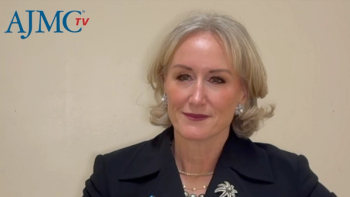
Helping Patients With Metastatic Breast Cancer Enroll in Clinical Trials
Sonya Negley, IOM, CSMA, describes the patient advocate’s role in helping patients with metastatic breast cancer discover and enroll in clinical trials.
Episodes in this series

Sonya Negley, IOM, CSMA: I think there are a few things we can do as organizations. We can make sure we are educating patients about what is available in clinical trials, and we as patient advocacy organizations need to look at it comprehensively, not just trials that may or may not be on clinicaltrials.gov, but clinical trials in general, and how can those trials support the patient? I think we have to be very cautious that it’s not the patient’s work to go out and make sure all of the trials have patients involved or that type of thing. But more so, giving their input in the way they feel they can best share their voice.
We want people who are living with metastatic breast cancer to feel like they are doing everything in their life that they want to do. Their lives are shortened, and it is incredibly important that they spend time with their loved ones. And it’s important for all of us to remember, whether we’re in research, science, or in patient advocacy, that people’s time that we’re using is time they’re taking away from their loved ones. So, [we need to] be efficient in making sure their goals are met, and [understanding] it’s a very important task, and [helping patients realize] that their participation is going to reward them personally, as well as rewarding discovery in this space.
Transcript edited for clarity.
Newsletter
Stay ahead of policy, cost, and value—subscribe to AJMC for expert insights at the intersection of clinical care and health economics.










